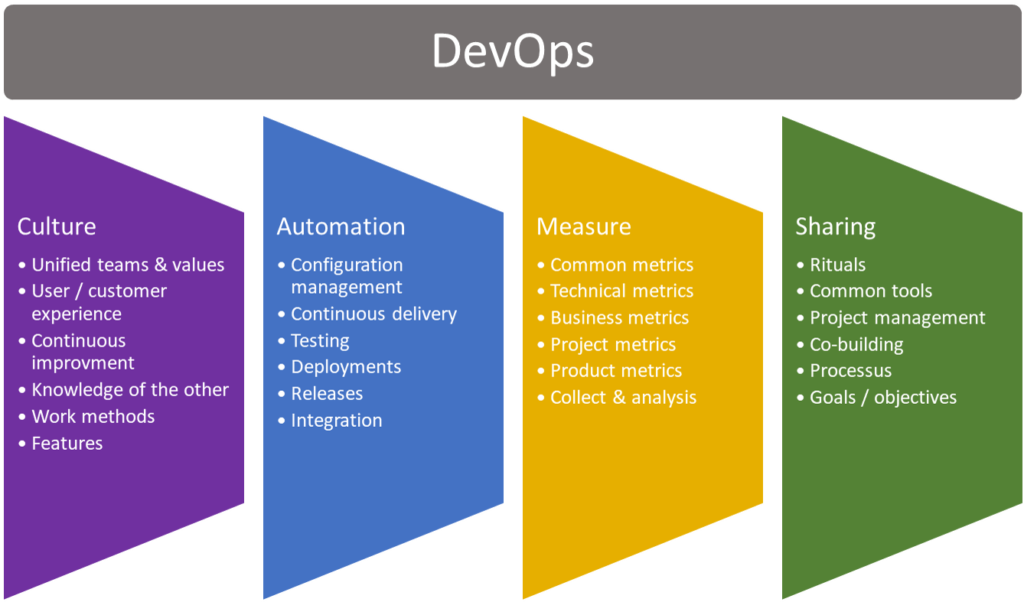DevOps Framework – The CALMS/CALMR Model
The CALMS model is an acronym that represents the key areas of focus in DevOps, outlining the core principles essential for a successful DevOps implementation. It stands for Culture, Automation, Lean, Measurement, and Sharing. This model emphasizes the cultural and organizational aspects along with technical practices necessary for achieving DevOps goals. Here’s a breakdown of each component:
Culture:
Culture is one of the foundational elements of DevOps. It involves creating an environment that fosters collaboration, trust, and shared goals among different teams involved in software development, operations, and other stakeholders. A DevOps culture promotes communication, teamwork, and a mindset focused on continuous improvement.
Automation:
Automation plays a crucial role in DevOps by streamlining repetitive tasks, reducing human error, and accelerating the delivery process. It involves the use of tools and technologies to automate various stages of the software development lifecycle, including build, test, deployment, and infrastructure provisioning.
Lean:
Lean principles borrowed from Lean manufacturing focus on eliminating waste, optimizing processes, and improving efficiency. Applying Lean principles in DevOps helps in identifying and removing bottlenecks, reducing unnecessary work, and improving the overall flow of value delivery.
Measurement:
Measurement is essential for DevOps teams to assess the effectiveness of their processes, track key performance indicators (KPIs), and gather data for continuous improvement. Metrics related to deployment frequency, lead time, mean time to recover (MTTR), and other relevant measures help in understanding the impact of changes and identifying areas for enhancement.
Sharing:
Sharing knowledge, experiences, and best practices across teams and the organization is crucial for successful DevOps implementation. Encouraging a culture of sharing insights, tools, lessons learned from successes and failures, promotes collaboration, learning, and improvement.
The CALMS model serves as a guideline for organizations looking to adopt DevOps practices. It emphasizes the need for a cultural shift, technological automation, process optimization, measurement of outcomes, and sharing of knowledge to enable faster, more reliable, and efficient delivery of software and services.

